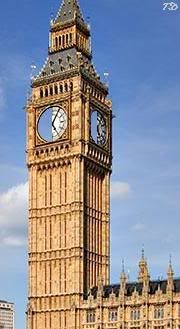 Rumours are flying around that Gordon Brown may be planning to call an October election, with Iain Dale having heard that it might be 4 October, Dizzy having heard that Tuesday is a deadline for something, and Ben Brogan says that:
Rumours are flying around that Gordon Brown may be planning to call an October election, with Iain Dale having heard that it might be 4 October, Dizzy having heard that Tuesday is a deadline for something, and Ben Brogan says that:
a candidate friend (Conservative) has just been telephoned on a Friday night and told to expect delivery of 20,000 leaflets from his regional director, to be distributed in the first 24 hours of the campaign. Yikes!
The Times also reports that:
David Cameron has authorised a poster campaign next week amid Tory fears that Gordon Brown is preparing to announce an election this autumn.
The new advertising will seek to neutralise Labour claims that Mr Cameron has no substance and does not believe in anything, according to allies of the Tory leader...
Senior Tories at the party’s headquarters are convinced that Mr Brown is planning an important announcement next week, and fear that it could be the election date.
But is this really the beginning of a general election campaign?
I'm not convinced that it is. I don't think that Brown will take the chance, since the polls certainly aren't
all going perfectly for him, and to go for an election so soon after becoming leader will look opportunistic. I'm not even sure whether Brown will go for an election even in
2008 - he almost certainly won't unless the polls stay positive for him after the end of his honeymoon period.
When it comes to calling an election, the governing party always has the upper hand. They know when and can plan ahead in ways which the Opposition parties certainly can't, and so they have to take gambles, even if they are just preventative ones. In many ways, the lack of constraints over when an election is to be called is quite damning for a modern democracy. Whilst I don't like the idea of fixed election dates, leading to absurdly long build-ups like we see in America, longer periods of notice should be required - somewhere between 3 and 6 months. Thus it would maintain most of the benefits of a more flexible electoral cycle, but without the downsides of utter uncertainty over election dates.







































